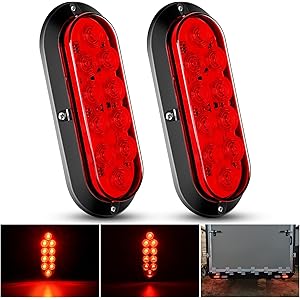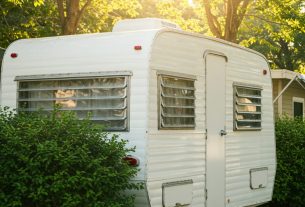When I first faced the decision of choosing a water heater for my home, I was overwhelmed by the options available. It wasn’t just about picking a brand or model; I had to consider whether I needed a water heater suitable for a traditional residential setup or one specifically designed for a mobile home. After extensive research and personal experience, I’m excited to share my insights on the crucial differences between mobile home and residential water heaters, helping you find your perfect fit today.
Understanding the Basics: What is a Water Heater?
Before diving into the specifics, let’s clarify what a water heater is. A water heater is a device that heats water for various purposes, primarily for bathing, cooking, cleaning, and space heating. They come in different types, each designed to cater to specific needs and environments.
Types of Water Heaters
There are several types of water heaters available, including:
- Tank Water Heaters
- Tankless Water Heaters
- Heat Pump Water Heaters
- Solar Water Heaters
Each type has its advantages and disadvantages. However, when differentiating between mobile home and residential water heaters, certain features become more critical.
Key Differences Between Mobile Home and Residential Water Heaters
The differences between mobile home and residential water heaters primarily revolve around design, installation, and safety requirements. Here are the most significant distinctions:
1. Size and Capacity
One of the first things I noticed during my research is that mobile home water heaters are typically smaller than their residential counterparts. Mobile homes often have limited space, necessitating compact designs.
- Mobile Home Water Heaters: Usually range from 30 to 40 gallons.
- Residential Water Heaters: Can range from 40 to over 80 gallons.
This compact size helps save space in mobile homes, which often have less room for bulky appliances.
2. Weight Considerations
Weight is another crucial factor. Mobile homes are built to accommodate lighter loads than traditional houses. Consequently, mobile home water heaters are designed to be lighter, which also aids in easy installation and mobility.
3. Installation Requirements
Installation requirements significantly differ between the two types. Mobile home water heaters are often designed for easier installation, adhering to specific codes and regulations that ensure safety in mobile setups.
- Mobile home water heaters usually require a specific type of drainage and venting system.
- Residential water heaters may need additional space for installation and compliance with local building codes.
Understanding these requirements can save you time and money during the installation process.
4. Energy Efficiency
Energy efficiency is a concern for many homeowners, and it was a significant factor in my water heater choice. Mobile home water heaters often have energy efficiency ratings that comply with specific federal guidelines, making them suitable for smaller living spaces.
- Mobile Home Water Heaters: Generally designed to heat water quickly for immediate needs.
- Residential Water Heaters: May offer higher capacity but can result in higher energy consumption if not managed correctly.
When evaluating potential options, I found that checking the Energy Factor (EF) rating can provide insight into the efficiency of both types.
5. Safety Features
Safety features are paramount, especially in mobile homes, which require specific considerations due to their unique structure. Mobile home water heaters often have built-in safety features like:
- Temperature and pressure relief valves to prevent overheating.
- Low-profile designs to fit securely in tight spaces.
Residential water heaters also include safety mechanisms, but the requirements may vary based on local building codes.
6. Cost Differences
Cost is always a concern for homeowners. Generally, mobile home water heaters tend to be less expensive than residential models. However, it’s essential to consider both the initial purchase price and long-term operating costs.
- Mobile Home Water Heaters: Typically less expensive upfront but may have lower efficiency.
- Residential Water Heaters: Higher upfront costs, but often more efficient in the long run.
Balancing these factors can help you make a more informed decision.
Choosing the Right Water Heater for Your Needs
Now that we’ve explored the differences, how do you choose the right water heater for your needs? Here are some essential questions to consider:
- What is the size of your home, and how much hot water do you typically use?
- Do you have specific energy efficiency goals?
- Are there any installation requirements or limitations in your space?
- What is your budget for both the initial purchase and ongoing operating costs?
By answering these questions, I was able to narrow down my options significantly.
Case Studies: Real-Life Experiences
To provide you with a more comprehensive understanding, I’ll share a couple of real-life experiences that highlight the practical differences between mobile home and residential water heaters.
Case Study 1: The Compact Mobile Home Experience
My friend Sarah lives in a compact mobile home. When her old water heater broke down, she needed a quick replacement. She opted for a 30-gallon mobile home water heater, which fit perfectly in her limited space. She noted a significant reduction in energy bills compared to her previous model, thanks to its efficient heating technology.
Case Study 2: The Spacious Residential Home
On the other hand, my neighbor Mike has a large residential home. When he replaced his water heater, he chose an 80-gallon tankless model. Although the initial investment was higher, Mike found that he could enjoy endless hot water without worrying about running out during family gatherings. His energy bills also showed a noticeable decrease due to the improved efficiency of the new system.
Statistics That Matter
Here are some statistics that may help you understand the impact of choosing the right water heater:
- According to the U.S. Department of Energy, water heating accounts for about 18% of the energy consumed in a typical home.
- Energy-efficient water heaters can reduce energy costs by 10-50% compared to standard units.
- Mobile home water heaters can save homeowners an average of $200 annually in energy costs.
These statistics highlight the importance of making an informed choice when selecting a water heater.
Frequently Asked Questions
1. Can I use a residential water heater in a mobile home?
While it is technically possible, it is not advisable. Residential water heaters may not fit the specific installation requirements and safety features needed for mobile homes.
2. How long do water heaters typically last?
Most water heaters last between 10-15 years. However, proper maintenance can extend the lifespan significantly.
3. What maintenance do I need to perform on my water heater?
Regularly flushing the tank, checking the anode rod, and ensuring proper insulation are essential maintenance tasks that can prolong the life of your water heater.
Final Thoughts: Finding Your Perfect Fit
Choosing between a mobile home and residential water heater can feel daunting, but understanding the key differences helps simplify the decision-making process. I encourage you to evaluate your specific needs, consider the factors we discussed, and make an informed choice that will serve you well for years to come.
If you found this article helpful, please share it with your friends and family on social media. Don’t forget to sign up for our newsletter for more tips, insights, and updates on home maintenance and improvement. Together, let’s ensure you find the perfect water heater for your home!
Nilight 6 Inch Oval Red LED Trailer Tail Light Surface Mount 2PCS 10 LEDs Waterproof Stop Brake Turn Trailers Lights for Truck RV Boat Bus Lorry Camper Van Caravan
$18.99 (as of November 15, 2025 07:52 GMT -03:00 - More infoProduct prices and availability are accurate as of the date/time indicated and are subject to change. Any price and availability information displayed on [relevant Amazon Site(s), as applicable] at the time of purchase will apply to the purchase of this product.)
Sign up for our newsletter and stay up to date with exclusive news
that can transform your routine!





